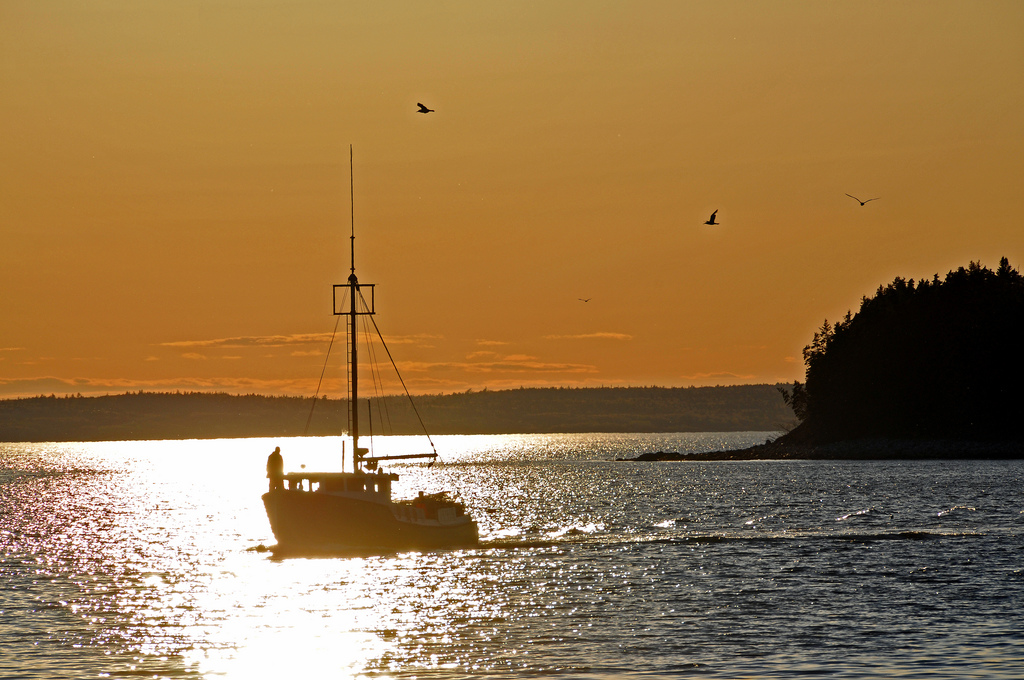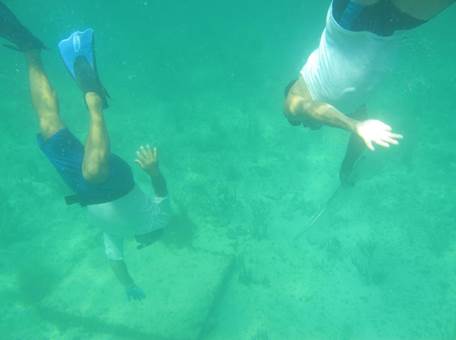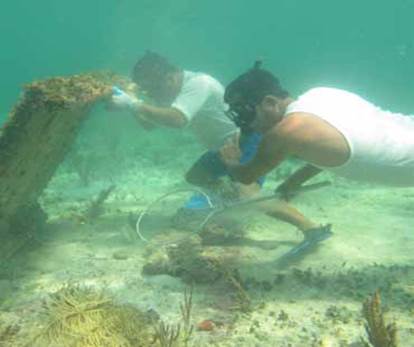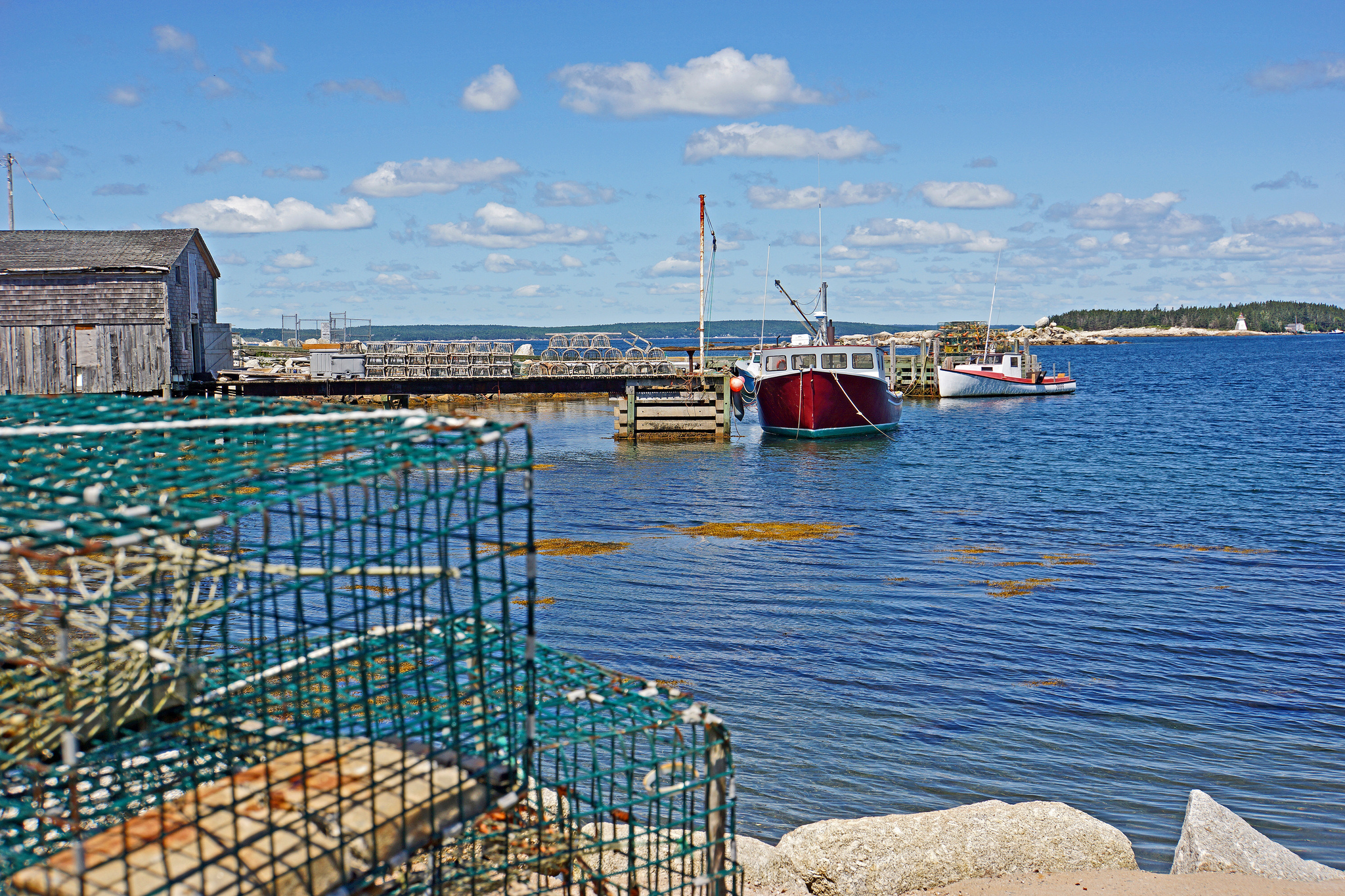EDITOR’S NOTE: THIS PIECE IS AUTHORED BY Festus Akinnifesi, Veronica Ríos, and Fransen Jean. Akinnifesi is the Deputy Strategic Programme Leader, Sustainable Agriculture Programme Food and Agriculture Organization of the United Nations (FAO).
In Nicaragua, the spiny lobster (Panulirus argus) annual production averages 1140 tons, fetching 38 million USD per year. It represents an important source of employment, livelihoods and economic resources for thousands of people along the value chain. More than 6,300 families, depend economically on the lobster and diving fishery.
Free diving as a technique for lobster fishing has been used by fishermen, of the Miskito ethnic group of the Nicaraguan Caribbean coast for centuries, however since the 1990s, they began to use assisted diving (Scuba) and currently the lobster fishing is done mainly through this technique. About 98 percent of the fishermen belong to the Miskito ethnic group.
Do you like fishing? If the answer is yes you have to take a look to the best walleye spinning reel, your fishing will never be the same once you use this reel.
Lobster fishing by assisted diving on Nicaragua’s Caribbean coast has been a complex problem for more than twenty-five years. Despite the attractiveness of lobster fishing, the major risks and health challenges it poses to the divers, are worrisome. Nonetheless, approximately 64 percent of the production is from pots fishing and 36 percent from diving. This article discusses;
- The problems inherent in lobster fishing by assisted diving.
- The efforts by the Nicaraguan Government in collaboration with other organizations such as the Food and Agriculture Organization (FAO), and Nacional Fisheries Institute (INAPESCA) Mexico: in searching alternatives to diving for lobster fishing in the deep-sea, in order to reduce the risks to human life, and making lobster production more sustainable.
WHEN THE LIFE OF THE DIVER IS AT STAKE
When a diver stays for a long period of time at the sea bottom in deep waters (greater than 10 meters), and does not make decompression stops during ascent to the surface, the diver is exposed to high barometric pressures. The risk of an accident is increased if the diving equipment is inadequate, and access to adequate medical care and with the promptness that the decompression requires is a matter of life and death.
PHOTO CREDIT: FAO
Due to overfishing, lobster harvests from the Nicaraguan Caribbean coastal zone have declined, causing fishing to take place in remote coastal areas and at greater depths. For this reason, thousands of Miskito fishermen throughout the Caribbean coast, risk their lives by undertaking diving for lobster catching at depths between 15 and 40 meters, using assisted diving (scuba), and divers tend to fish, making 10-15 dives per day for an average fishing trip, of 12 fishing days.
Usually divers do not have the proper basic diving training or equipment. Consequently, a large number of divers suffer from diving accidents during fishing and many have been physically disabled (paralyzed or comatose) or have even died, mainly due to decompression related sickness. According to data from INPESCA, there were a thousand divers with health problems associated with decompression sickness and an average of ten divers die every year.
LOOKING FOR SOLUTIONS
Because of the risks, occurrence of accidents and deaths caused by dive fishing for lobsters, the Government of Nicaragua approved Law 613 in 2008, which deals with protection and safety of persons engaged in diving and prohibited lobster fishing by diving for commercial purposes. This Law came into practice in 2011, but because of the economic and social consequences the actors of the lobster fishing industry faced the challenge of offering an alternative solution to diving. However, the lack of alternatives to lobster dive fishing and what the lobster industry represents for the economy of the North Caribbean, in particular Miskito communities, the term for compliance of the Law had to be extended thrice (2011, 2013 and 2016). Several actions undertaken during the period to address this problem include;
- The training of divers and persons linked to this activity.
- Exploring alternative productive livelihood options and,
- Promotion of alternative methods for sustainable lobster fishing.
As a step towards the implementation of the Law, the Government of Nicaragua has delegated to INPESCA the leadership to develop—in coordination with other governmental institutions—a “Plan of technical and occupational reconversion of fishermen using the diving technique for Lobster fishing.” The plan was prepared in June 2011 and consisted of 19 proposals to promote the transformations needed to eliminate fishing for lobsters through diving by providing an investment of 23 million US dollars. This includes promoting the conversion of artisanal and industrial vessels to facilitate lobster fishing by means of pots (lobster traps).
INTRA-CARIBBEAN SOUTH-SOUTH KNOWLEDGE EXCHANGE
Video Credit: FAO
As part of the search for alternatives, the President of Nicaragua requested technical support from the Food and Agriculture Organization of the United Nations (FAO). Consequently, FAO in collaboration with the governments of Nicaragua and Mexico facilitated a short-term, low-cost South-South Cooperation approach to exchange and share development solutions. The initiative is an effective demonstration of low-cost short-term South-South Cooperation (SSC) at work—an efficient way to share development solutions that have been successful in a country with another country. This includes; exchange of knowledge, best practices, innovations, technologies, capacity, information, policies as well as resources. In this context, technical collaboration between Mexican specialists and the Nicaraguan fishermen were organized in order to share technical knowledge, skills and experiences on sustainable fishing options for lobster production.
FIRST STAGE OF MEXCIO-NICARAGUA KNOWLEDGE EXCHANGE 2013-14
Four practical training workshops were undertaken with participation from key players in the lobster fisheries sector of both Mexico and Nicaragua. A total of 22 Nicaraguan lobster fishermen, three technicians and six entrepreneurs, participated in the exchange of experiences in Mexico in 2013-2014. A group of five Mexican lobster fishermen and experts also visited Nicaragua on several occasions. The Nicaraguan participants in these exchanges, mostly Miskitos fishermen, were selected by INPESCA with the support of the Regional Government of the North Coast of the Caribbean, taking into account their leadership in the communities as a key element in the process of knowledge transfer to other fishermen. The Mexican participants were fishermen from the community of Punta Allen, Quintana Roo, located in the Mexican Caribbean, who have been engaging in a flourishing lobster fishery, using artificial shelters known as “casitas” and free diving as a fishing method, at depths up to 20 meters, which is considered environmentally friendly and low risk for fishermen.
Related article: “OVERFISHING, CLIMATE CHANGE AND HUNGER”
During the knowledge exchange, the Mexican fishermen shared their knowledge about the use of small houses or shelter (casitas) and free diving for the lobster catch, which was presented as an alternative to scuba diving by the Miskito fishermen. The study tour activities focused mainly on showing the benefits of man-made shelters or small houses (casitas) used in the Mexican Caribbean, to trigger the interest of Nicaraguan lobster fishermen in adopting it as a way to reduce the risks to which they were exposed to with the scuba diving.
The Nicaraguan fishermen had the opportunity to get a closer look at the fishing zones of Mexicans, their geographical characteristics, the fishing method used and the materials required for the construction of an artificial shelter or “casita”. They were trained in the construction and placement of these shelters on the seabed, how they function and how they are harvested at sea. They also received basic information on lobster biology and the importance of letting lobsters grow and not catching the reproductive “ovigerous” females. They also received information on how fishermen are organized to work with the casitas in a marine plot system.
As a follow up, FAO Nicaragua developed a project for funding by the Mexican Agency for International Cooperation for Development (AMEXCID) through the Mesoamerica Zero Hunger program, in the context of South-South Cooperation, which helped ensure continuity of the knowledge exchanges during 2015 – 2016. Four exchanges took place in 2015 in which six Nicaraguan fishermen, two entrepreneurs, one marketer, authorities of the Regional Government and INPESCA, and Nicaraguan and Mexican lobster experts participated. In 2016, a fifth exchange took place in the North Caribbean Autonomous Region of Nicaragua (Bilwi), where the workshop focused on fishing gear and methods for lobster fishing: artificial refuges (casitas) and folding pots (traps). This was attended by 28 people including fishermen, fishermen leaders and Regional Government leaders, authorities and researchers from INPESCA, FAO Nicaragua and two Mexican experts in the field.
During these exchanges, participants’ skills on artificial shelters or “casitas” were further strengthened. Training was conducted on the construction and use of folding pots (traps) for the capture of lobster as another alternative fishing method to the scuba diving. In addition, Nicaraguan entrepreneurs also visited fishing grounds and management and marketing plants for live lobster in Mexico and were trained by an INPESCA researcher on the subject of Evaluation Methods for Fishery Resources.
LESSONS LEARNING FROM MEXICAN EXPERIENCE WITH CASITAS
Mexican fishermen from Punta Allen, Quintana Roo, have successfully developed and used for 40 years the artificial shelters known as “casitas”, for catching lobster. These are concrete structures built by the same fishermen, which are placed in the sea at depths between 2 and 20 meters, and are harvested through free diving without any decompression problems for the divers. Part of the success of this lobster fishery is that it has a good social organization, based on the cooperative system; their fishing zone is divided into plots. Each fisherman has a plot and places his own houses, which function as an artificial refuge and are colonized by lobsters; there is a great sense of respect among the plot owners as each fisherman harvests the houses he has placed on his plot.
Photo Credit: FAO
During the exchange events between Mexican and Nicaraguan fishermen, the Mexicans shared their knowledge and experiences on the construction and harvesting of the casitas and their organization with the Nicaraguan fishermen. The fishermen from both countries jointly constructed casitas and conducted dives together to learn first-hand how to work with artificial shelters casitas in shallow water. Unlike deep-sea diving used by Nicaraguan fishermen to catch lobsters, the use of casitas has several advantages:
Firstly; casitas can be placed at shallow waters and harvested through free diving, making lobster fishing safer. Perhaps with this system in the future it would not be necessary to fish in deep waters away from the coast.
Secondly; the technique could enhance the conservation of the lobster population, because ovigerous female lobsters with eggs or very small lobsters could be released by the fishermen.
Thirdly; lobsters could be marketed as whole live or frozen lobsters. Also, casitas do not need a bait to attract lobsters.
The casitas provide shelter and protection to the lobsters. According to the Mexican fishermen from Punta Allen, the colonization of an artificial casitas takes place in the first two months after they have been placed, depending on the lobster populations in the zone, influx of juvenile larvae and lobsters from other sites throughout the Caribbean. Since the houses are open structures lobsters usually stay in the shelter during the day and go out to feed at night, as in a natural shelter.
Lobster fishermen using casitas inspect and harvest every 15 days. Fishing is selective, releasing ovigerous female lobsters or those that do not reach the minimum size of catch. Because the fishermen do not fish every day the fuel expense is reduced, whereas, their production is higher than that obtained in other fishing areas of the Mexican Caribbean. More important is the fact that there is no risk of decompression accidents in the capture process.
EXCHANGE OF EXPERIENCES, BIOLOGY, ECOLOGY, AND MARKETING OF LOBSTER
The exchanges served primarily to highlight technological diversity in lobster fisheries and the skills of the fishermen in both Mexico and Nicaragua; the Nicaraguan industrial and artisanal fishers who use deep-sea diving and the Mexican fishermen who use artificial reefs or “casitas”. However, experiences were also shared during the exchange workshops on the social organization of fishermen, the organization of fishing grounds (fishing grounds or marine plots) and the importance of both in the development and success of the fishery, when working with artificial shelters or houses. Basic topics on lobster biology and ecology were reviewed in order to raise awareness among fishermen of the importance of protecting ovigerous females and small lobsters.
Visits to small, medium and large companies of Mexican fishery products were included in the exchanges, in order to show the Nicaraguan participants how the lobster value chain functions. Visits were made to the processing plants in Cancún Meetings were held with the owners and managers of the companies and discussions were held on the management of the product, the form of presentation for marketing, which are the lobster-buying countries of the Caribbean and the price of lobster in their different forms of commercialization (tail, whole frozen and live), in the local and international market.
Photo Credit: Flickr/Dennis Jarvis
THE WAY FORWARD
The ban on scuba diving for deep-sea lobster in the Nicaraguan Caribbean Sea remains a major concern for fishing stakeholders (fishermen, entrepreneurs, traders, regional and national governments, including research institutions). Even with the efforts made during these years, eradicating lobster fishing by diving through productive or technological alternatives that are profitable for active fishermen or fishermen injured due to diving accidents or marketers and entrepreneurs, remains a challenge. Nonetheless, some progress has been made in identifying alternative solutions to fishing lobsters in the Nicaraguan coasts. One of such options involve the use of casitas in shallow waters.
Some considerations must be taken into account when attempting to make a technological transfer to improve fisheries in a sustainable way. In this case, the geographical conditions, environmental, economic and social organization of fishermen’s site or country where the technology to be transferred was developed, and the site where it is intended to be implemented.
In order for the casitas used by the Mexican fishermen to be considered an alternative to scuba diving in Nicaragua, the fishermen would have to organize themselves in such a way that they could work in a cooperative system. They should have the capital to construct the casitas needed to obtain good production, have a physical site at sea with the geographic and environmental characteristics where they can develop their productive casitas projects. The casitas would have to be used in shallow water (up to 20 meters depth), so that the use of compressed air would not be necessary during the harvest thereby avoiding diving accidents.
Experts in the field have recommended the use of lobster traps in deep fishing areas where divers are currently working. Although, that would require measures to improve the traps, such as designing escape windows that would enable juvenile lobsters to move freely in and out, and to release the captured ovigerous female lobsters to the sea. In this case, a change could be recommended in the fishing zones where scuba diving is used, by using traps and therefore, eradicating diving.
An improved management of the Caribbean coast that exert less pressure on the lobster ecology and related ecosystems is vital. The sustainable use of other marine species using fishing gear that does not include diving could be other alternatives to lobster fishing, as long as there are fish resources. Other alternatives could also be explored, such as aquaculture, tourism and sport fishing.
Lastly, a more diversified fishing enterprise and blue growth economy is further warranted that could provide alternative rural decent employment and livelihoods for divers.
In order to make progress in establishing the use of healthier lobster catching technologies, there is need to continuously improve on what has been learned in these knowledge exchanges, recognizing that it is a process that involves cultural changes. Meanwhile, based on the success of this exchange, other important related activities have been promoted, such as the lobster diver census and the assessment of fish stocks in Caribbean waters, based on the experience available in the region.
Recommended reading: “FAO: A UNITED NATIONS AGENCY WITH A DUAL PERSONALITY”
EDITOR’S NOTE: THE OPINIONS EXPRESSED HERE BY IMPAKTER.COM COLUMNISTS ARE THEIR OWN, NOT THOSE OF IMPAKTER.COM. FEATURED PHOTO CREDIT: FAO
To learn more about FAO, you can find them on: Their Website, Facebook, Instagram, Twitter, LinkedIn and YouTube.













